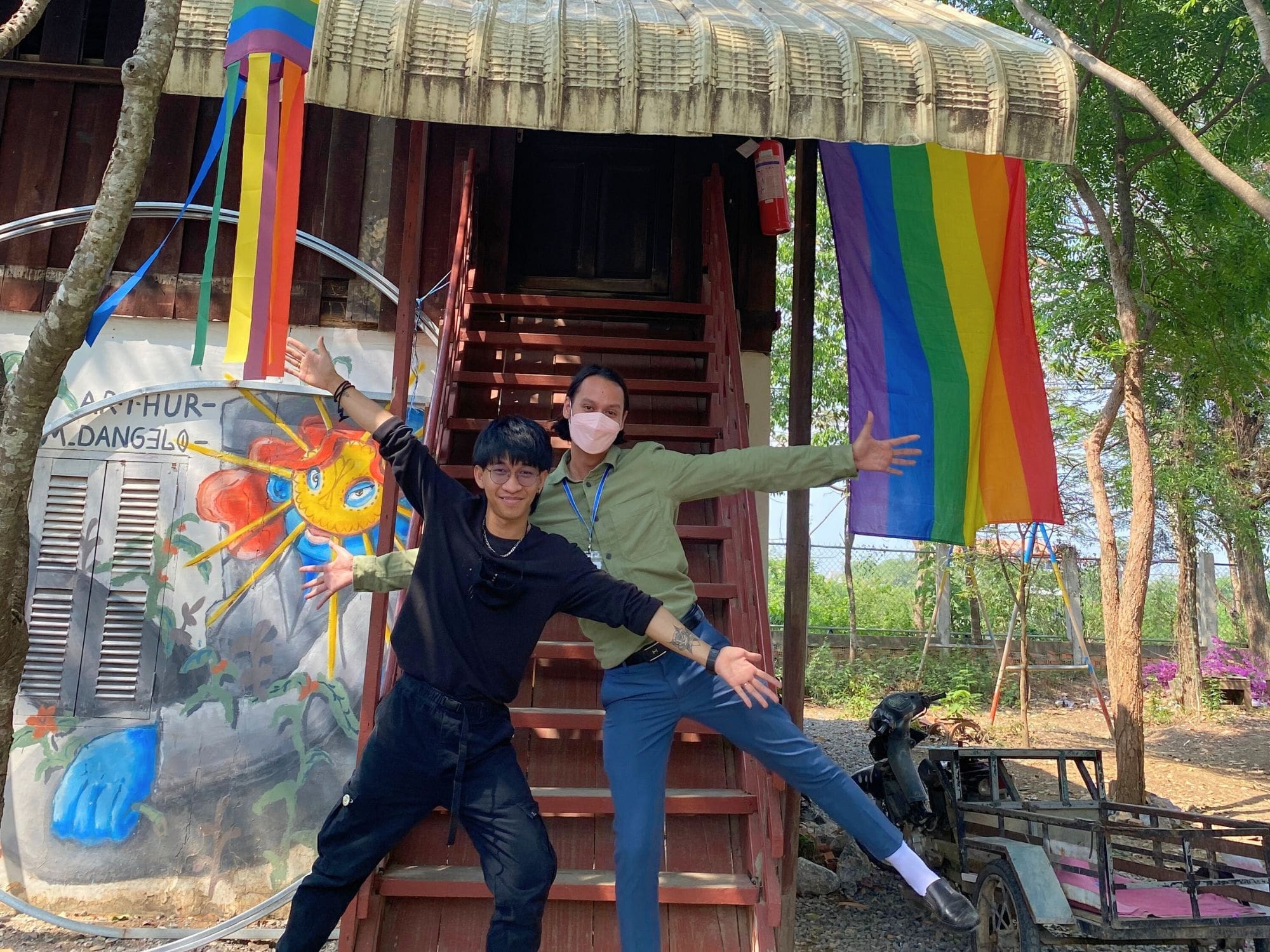How We’re Working to Bring Entrepreneurship Education to Every Cambodian University
17 universities across Cambodia are now implementing the SmartStart Unipreneur Learning Platform (ULP). We look back at the journey to integrate entrepreneurship education into Cambodia’s higher education system!

- Kosoma Kim
What if every university student in Cambodia was equipped with the 21st century skills and the entrepreneurial mindsets they needed to take on the world?
We got one step closer to that vision earlier this month: We renewed MOUs with 10 universities and signed new partnerships with 7 universities to expand the reach of our SmartStart Unipreneur Learning Platform (ULP)!
By the end of 2024, we anticipate we will reach 2,500 students in all through the ULP entrepreneurship blended learning course — embedded in their university curriculum, taught by university lecturers, accessible from a computer or phone in English and Khmer.
I’ve been part of the Impact Hub Phnom Penh team working to build ULP with our amazing partners at Smart Axiata since the program’s beginnings in 2019. While we always had big dreams, I have to admit… we weren’t always sure that our vision could actually come true. Yet somehow, today, I’m approached by other esteemed partners asking, “How did you manage to build partnerships with so many universities? How did you manage to introduce a new curriculum into the university system?”
Our work is not done, and there’s a lot of exciting progress still to come — but in honor of this major milestone, let me share some of my reflections!
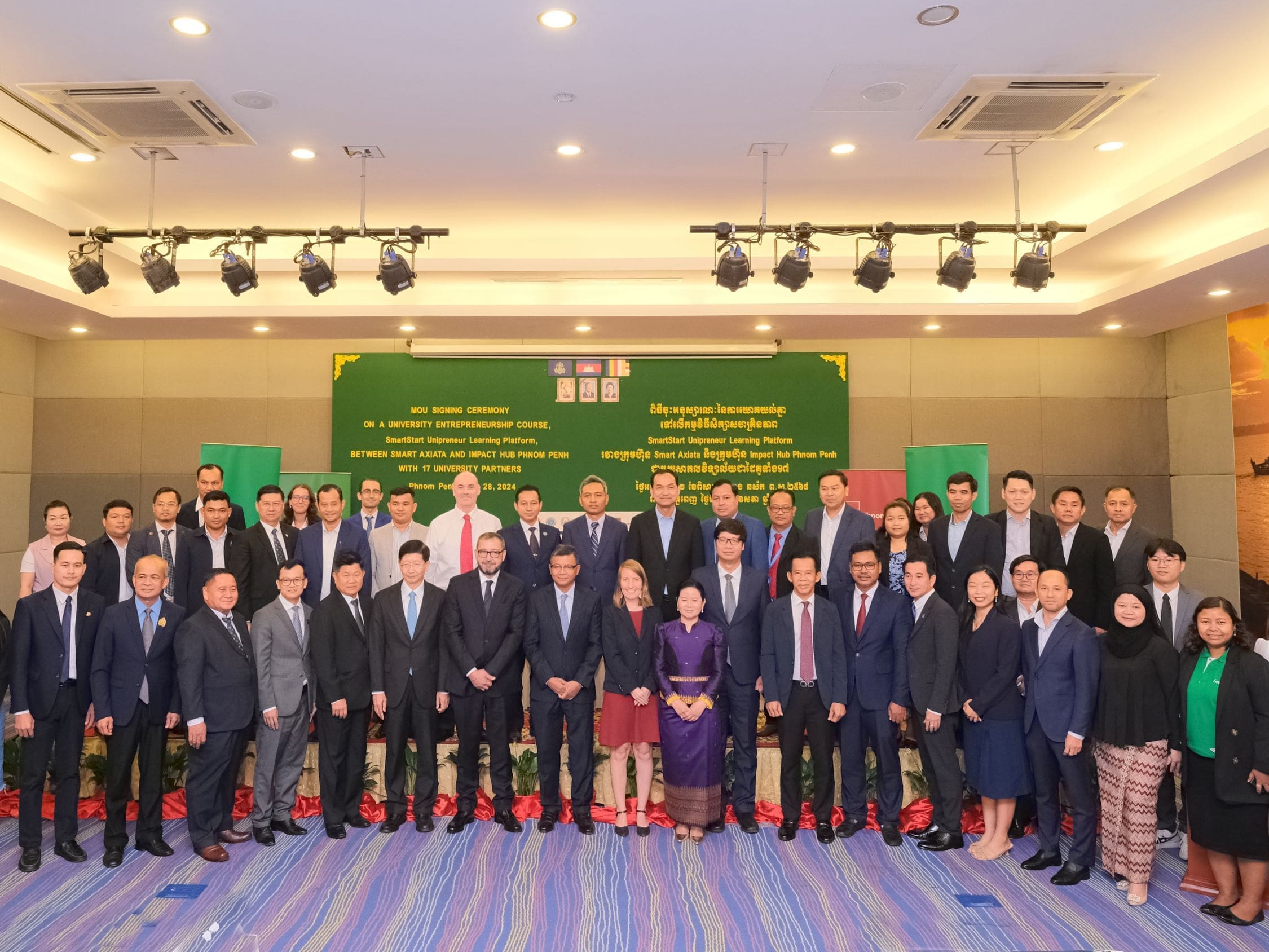
The vision: high-quality, accessible entrepreneurship education for all
When I was in university studying business (a very long time ago 😉), I took an entrepreneurship course. I didn’t find it particularly inspiring or practical. When I joined Impact Hub a few years later, I realized it’s because “learning” entrepreneurship is about “doing.” It can’t be theoretical.
We found partners at Smart Axiata who agreed and supported us to launch ULP in 2019 at the time at a much smaller scale.
From the start, we had a few core values. For one, we wanted to rethink the teaching and learning of entrepreneurship — introducing an online-offline approach, hands-on practice, and a localized curriculum spotlighting local entrepreneurs, rather than only examples from abroad.
Secondly, we wanted ULP to be embedded within universities, rather than an extracurricular program. If you ask students to apply for an extra opportunity, you’ll usually get the top-performers with existing passion. But what about other students who may not have the privilege, exposure, or confidence to participate? We wanted to ensure ULP was for them, too.
And finally, we wanted to expand ULP beyond Phnom Penh. Although we first piloted the program in Phnom Penh, and still have great university partners in the city, our long-term mission has been to mainstream ULP in provincial universities where students generally have less opportunity than in the capital.
Taking the leap to expand nationally
Expanding ULP beyond Phnom Penh has been one of the most challenging and rewarding experiences. My team and I learned so much through the process — and built a stronger program because of it.
First, we realized we had to adapt the curriculum to better fit students’ past experience and exposure. For example, the open-ended, challenge-based discussion exercises were less successful. Rather than asking students to bring a challenge to discuss, we developed challenges and case studies as starting points for them to explore.
At a higher level, we had to adapt our partnership building approach, too. In Phnom Penh, universities often hire part-time lecturers. This makes it easier to deliver the course through motivated guest instructors, who have existing interest and are open to adopting new methodologies. In contrast, most lecturers in the province are full-time, long-term staff. Often (though not always!), we faced greater resistance to adopting a new initiative.
Once again, rather than be discouraged, we took it as a challenge to learn and adapt.
By the end of 2024, we anticipate we will reach 2,500 students in all through the ULP entrepreneurship blended learning course — embedded in their university curriculum, taught by university lecturers, accessible from a computer or phone in English and Khmer.
Building trusting, productive partnerships
Me, and my team, decided to reframe: rather than just approach potential partners with what we can offer, we came with a mindset of what we have to learn. They have decades of experience teaching a certain way. They know their students better than we do. So let’s approach these partnerships with humility, understanding, and respect.
There was one lecturer who was implementing the course…but just barely. We felt a real block in collaboration, communication, and enthusiasm. We thought about giving up, but instead, we took the time to understand his mindset and the roadblocks. We worked with him to adapt the course to his and his students’ needs, rather than imposing only one way. A few months later, he walked up to me at a partner gathering and said, you should keep implementing this program, and you should work at other universities. He personally facilitated introductions at other universities that have since adopted the ULP.
I have so many other similar stories exactly like that one that I could share. And this experience illustrates two other strategies that were key to our success:
One is the “sandwich” strategy. I’ve seen other efforts in the ecosystem fail because they only build half the sandwich: they assume that approval or partnership with the leadership level is sufficient. Through ULP, we certainly build strong relationships with the dean or rector — but equally important is the active support of the implementor (the lecturer), too. The two slices of bread that make a sandwich!
Finally, in line with this “bottom-up” approach, we worked to cultivate our champions. Since the beginning, we’ve been clear that we don’t own ULP — the program’s growth and success is owned by those universities implementing it. As Impact Hub, we won’t make any progress mainstreaming entrepreneurship education across Cambodia without collaboration. And we’re proud that we have found and supported passionate champions within our partner universities who are now the ones encouraging other universities to adopt ULP.
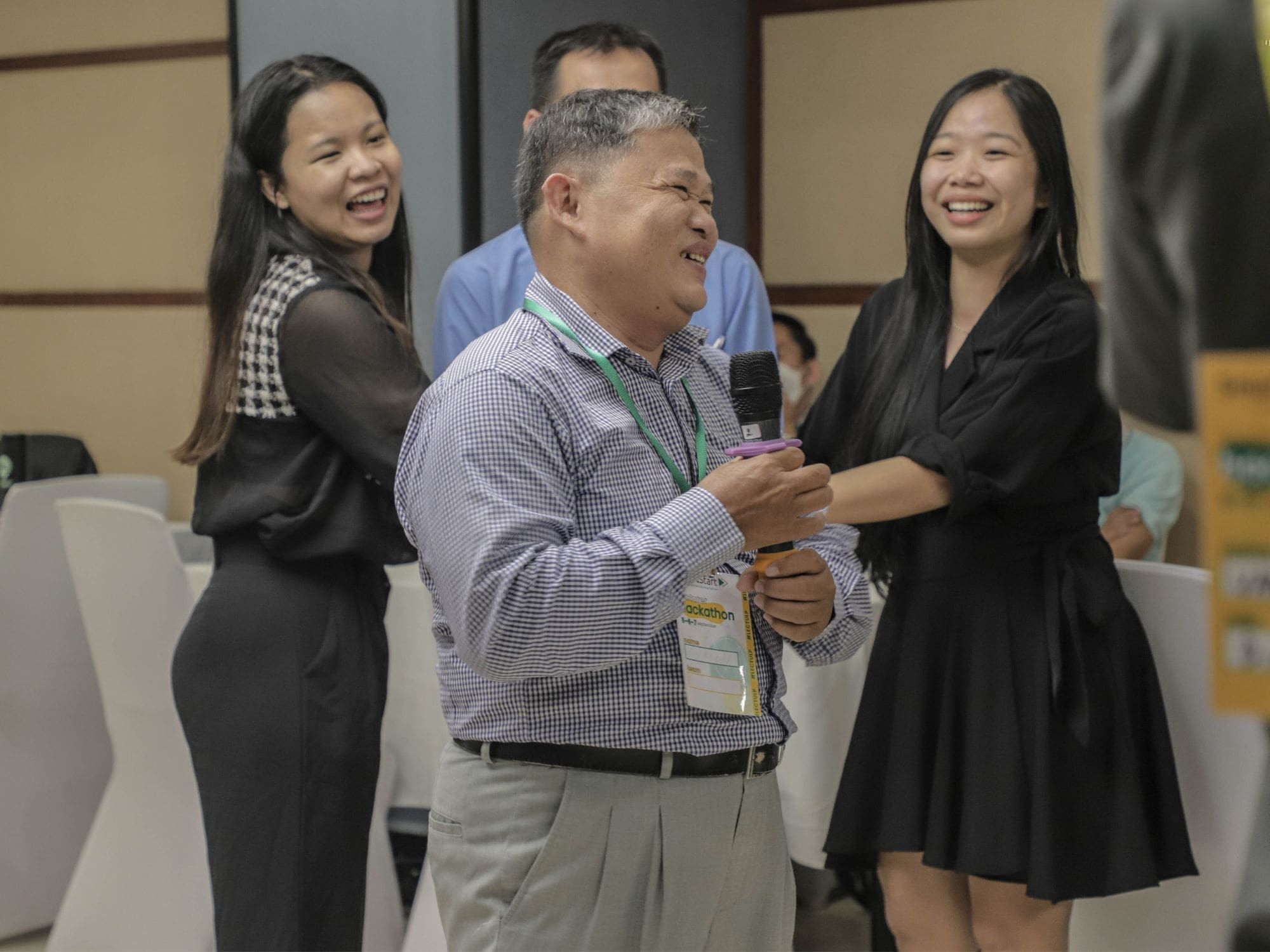
On the horizon
Over the coming months, we’ll be working hand-in-hand with our university partners to actually implement the course. You won’t be surprised to hear that this process is also individualized, adapted, and patient! For first-time partners, we provide extensive support to ensure lecturers don’t just have the skills and knowledge to deliver the course, but also the confidence — as we’ve learned, this is usually the blocking factor. We provide one-on-one mentoring and regular check-ins, which also give us insights into how we can improve the course and training-of-trainers approach. We sometimes invite lecturers to shadow instructors at other universities, or co-teach a class to build their confidence.
Ultimately, it comes back to sustained, trusted partnership at every level and every step of the process. It’s what has gotten us here: ULP is now bringing entrepreneurship education to hundreds of new students every year in Phnom Penh, Siem Reap, Battambang, Banteay Meanchey, and Svay Rieng. And even though we’ve got a few years of learning behind us, we’re just getting started 😊
Are you a university that wants to get involved? Are you a partner who wants to support our mission? Just want to grab a coffee and share ideas? Get in touch!
You also might like
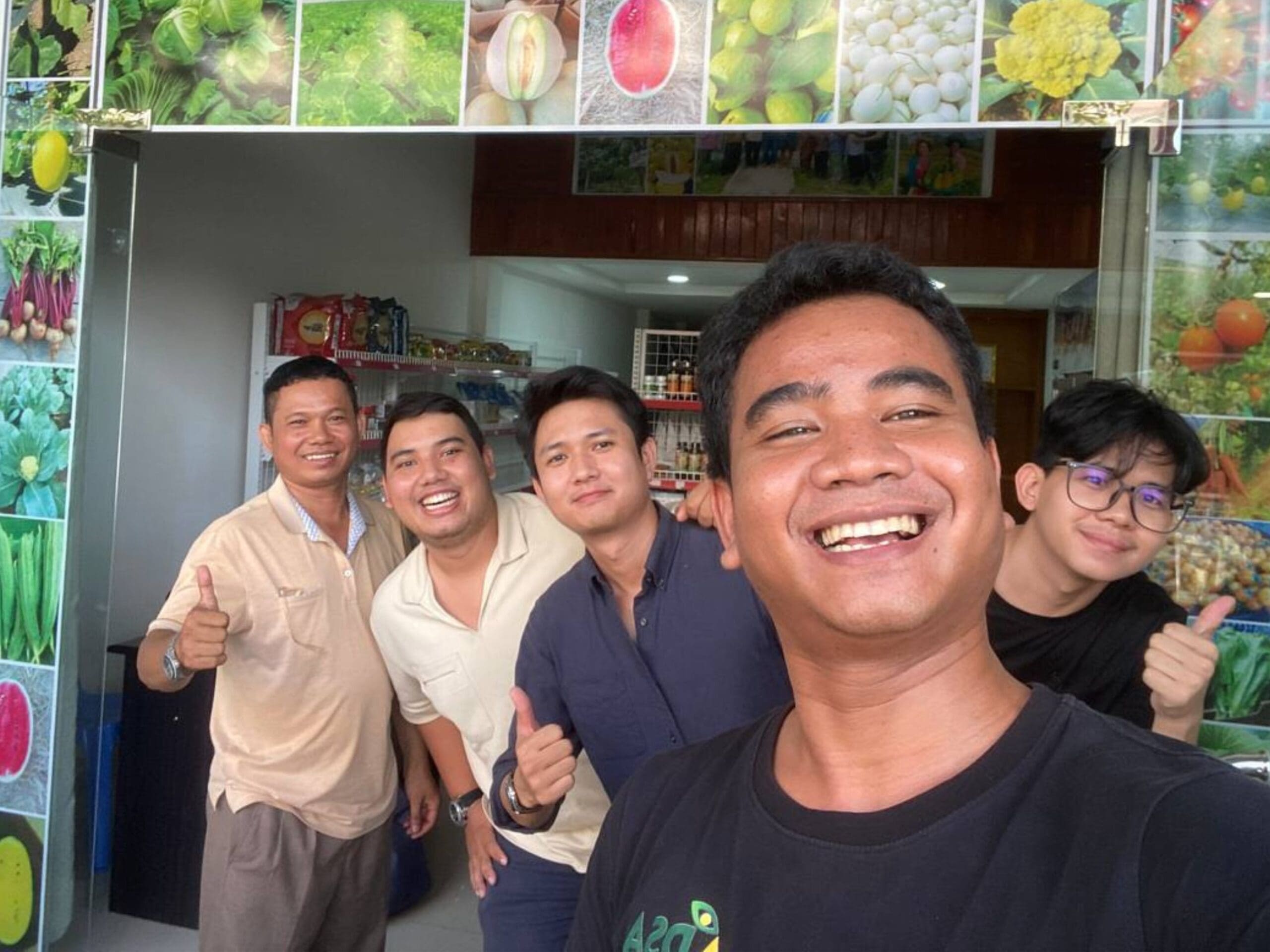
“More valuable than helping with money”: How our hands-on support helped ADSA refocus their path
“More valuable than helping with money”: How our hands-on support helped ADSA refocus their path
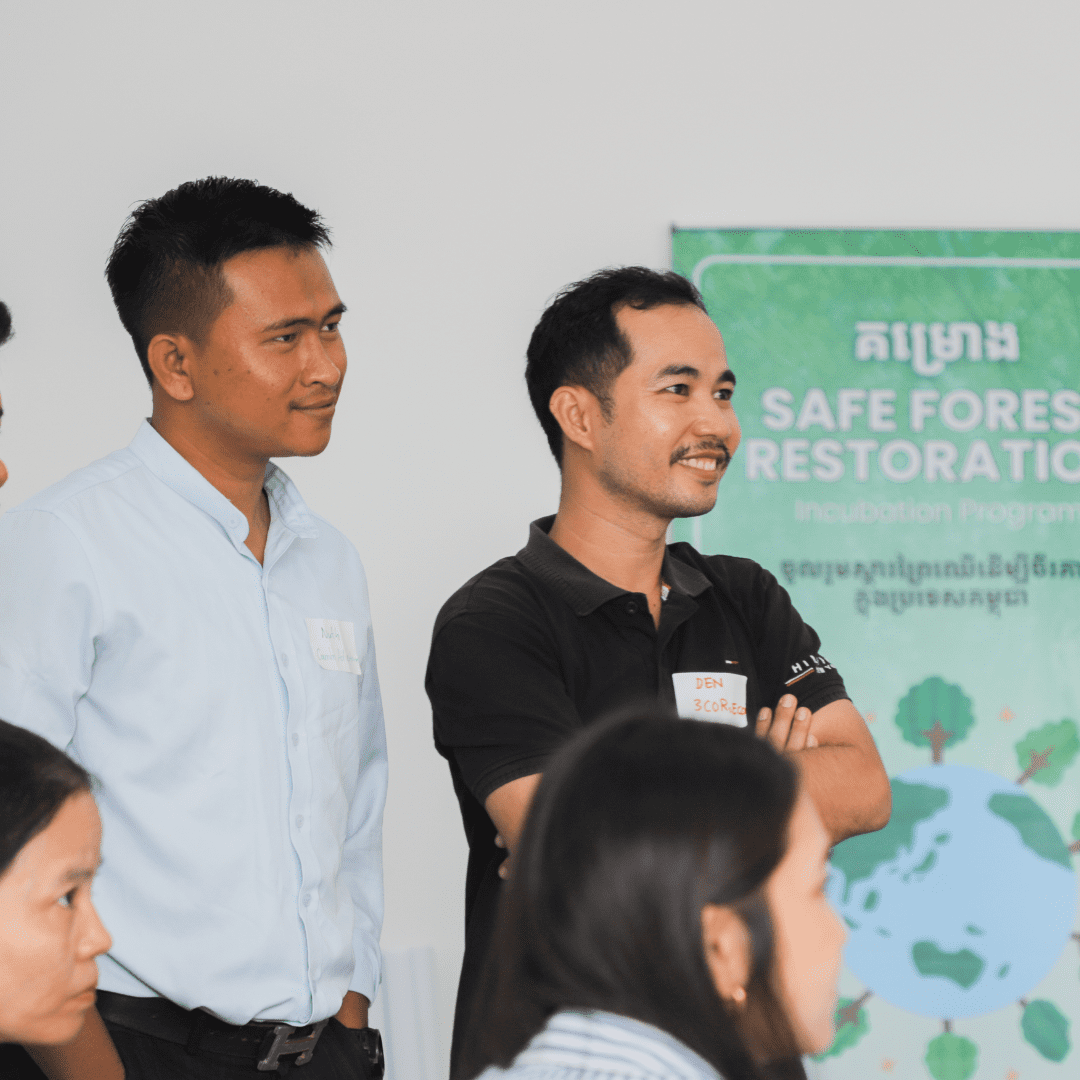
Growing Green Businesses: How Entrepreneurs Are Helping Safeguard Cambodia’s Forests
Growing Green Businesses: How Entrepreneurs Are Helping Safeguard Cambodia’s Forests
